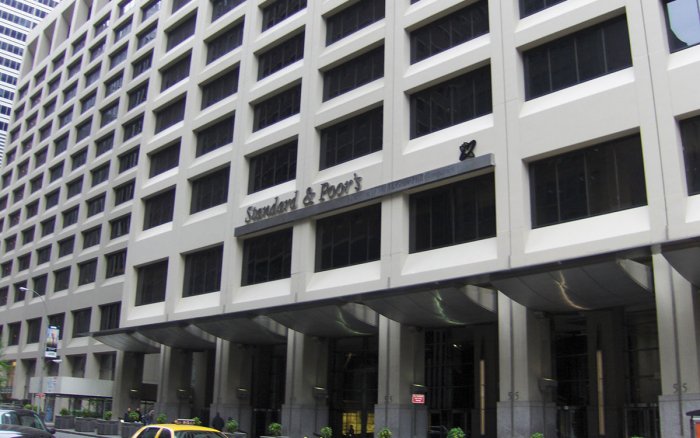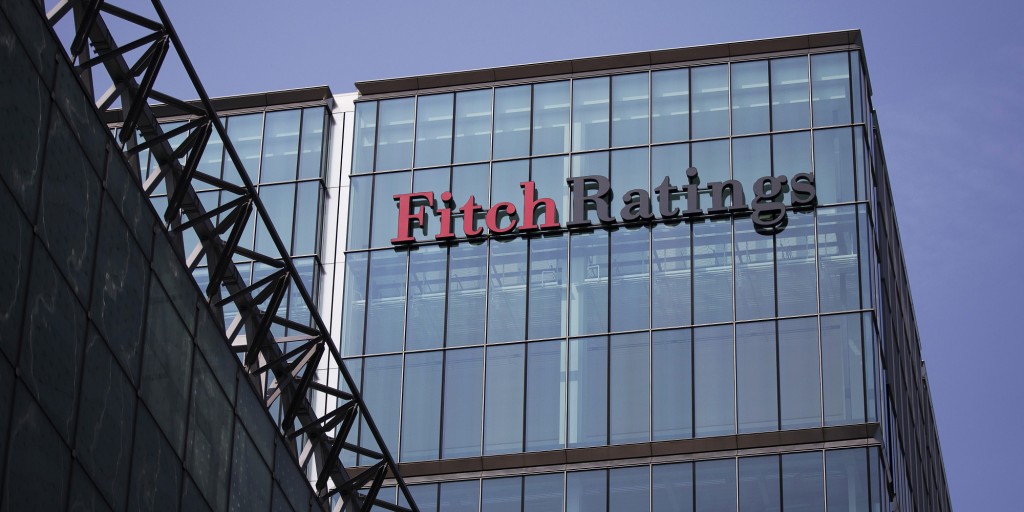S&P puts Hungary back in investment grade

Standard and Poorʼs Global Ratings said Friday it has raised its long and short-term foreign and local currency sovereign credit ratings for Hungary to ʼBBB-/A-3ʼ from ʼBB+/Bʼ, putting the country back in the investment grade, Hungarian news agency MTI reported late Friday.
S&P also raised its rating for the National Bank of Hungary (MNB) to ʼBBB-ʼ from ʼBB+ʼ. The outlook on both Hungary and the MNB is stable.
The upgrade reflects stronger economic performance, fiscal improvements, declining external financing and leverage needs and "a gradual moderation of activist monetary policies."
S&P said it now expects Hungaryʼs economy to grow at an average rate of 2.5% a year in 2016-2019, up from 2.0% forecast in the rating agencyʼs previous review in March.
S&P pointed out a "marked improvement" in Hungaryʼs external financial profile after the 2008-2009 global financial crisis. Hungary has not had a current account deficit since 2009, and it was a net lender to the rest of the world to the tune of 8% of GDP in 2015, it noted.
Hungary has reduced the proportion of foreign currency debt within central government liabilities, while also overseeing a fall in non-resident holdings of forint-denominated government securities, S&P said.
"In our view, this exempts Hungary from risks of future balance sheet shocks connected to any renewed ʼtaper tantrumsʼ," it added.
Commenting on the MNBʼs steps to scale back measures related to its "self-financing program," which aimed to move lenders’ liquidity out of central bank sterilization instruments and into government securities, S&P said it does not anticipate "an outright withdrawal of heterodox measures," but believes these measures "are less likely to contradict our assumptions of steady economic growth, gradually consolidating fiscal balances, a declining general government debt-to-GDP ratio, a robust external profile, and limited contingent liabilities."
S&P expects the current account surplus to narrow to under 3% of GDP in 2019, from 4.4% in 2015, on higher domestic demand and rising wage inflation, but projects Hungaryʼs external leverage will trend downward.
S&P sees the contribution of tax-rich domestic demand to overall GDP growth increasing, positively impacting government finances. The agency projects the general government deficit will narrow further to 1.8% of GDP in 2016 from 2% in 2015, though widening slightly to 2.5% in 2017.
"Downside risks to our fiscal forecast could arise from further state acquisitions, an expansion of fiscal programs to support a slowing economy, electoral considerations, budgetary spending on large projects such as the Paks nuclear power project, or the materialization of contingent liabilities - for instance, guarantees to the state-owned, rapidly expanding Magyar Eximbank or Hungarian Development Bank," S&P added.
S&P forecasts Hungaryʼs state debt-to-GDP ratio will "maintain its downward trajectory over the medium term," falling to 68% in 2019 from 72% in 2015.
S&P put Hungary’s primary surplus, which excludes debt servicing costs, at "slightly below zero over the medium term" as nominal interest rates are likely to rise, but real interest rates decline further.
S&P said it could raise Hungaryʼs ratings "if government debt declines faster than we project in tandem with a further reduction in sovereign debt-servicing costs, or if the transmission of monetary policy improves."
The ratings could come under pressure "if Hungaryʼs public finances weakened materially, if we were to expect a sustained reversal in the declining debt-to-GDP ratio, if contingent liabilities rise rapidly, or if external vulnerabilities build up again contrary to our current expectations," S&P said.
"We could also lower the ratings if we saw the transparency of key institutions weakening further, especially if we anticipated an eventual fiscal risk associated with such weakening," it added.
SUPPORT THE BUDAPEST BUSINESS JOURNAL
Producing journalism that is worthy of the name is a costly business. For 27 years, the publishers, editors and reporters of the Budapest Business Journal have striven to bring you business news that works, information that you can trust, that is factual, accurate and presented without fear or favor.
Newspaper organizations across the globe have struggled to find a business model that allows them to continue to excel, without compromising their ability to perform. Most recently, some have experimented with the idea of involving their most important stakeholders, their readers.
We would like to offer that same opportunity to our readers. We would like to invite you to help us deliver the quality business journalism you require. Hit our Support the BBJ button and you can choose the how much and how often you send us your contributions.







